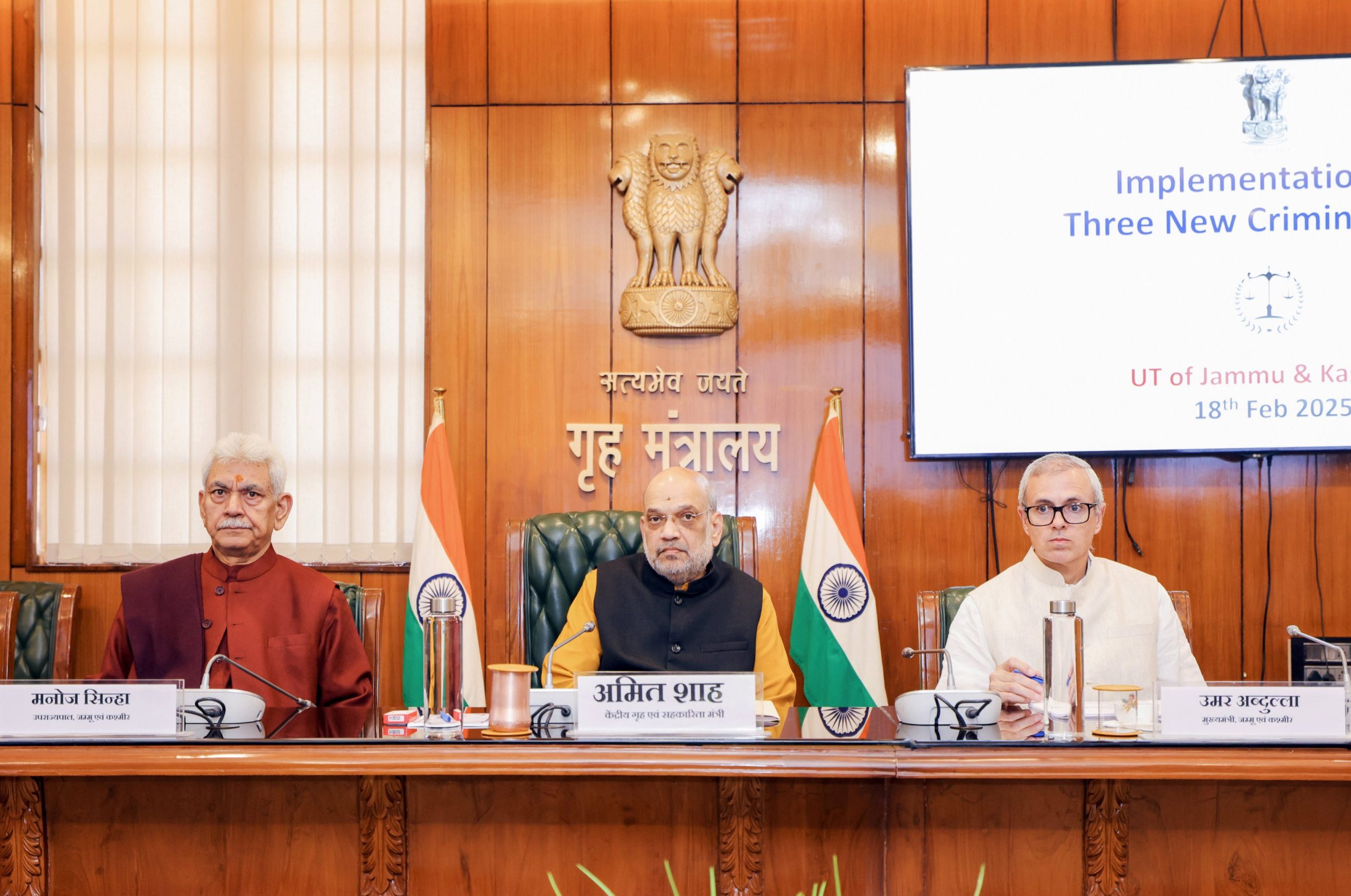New Delhi, Feb 18: Union Home Minister Amit Shah emphasized on Tuesday the necessity for the Jammu and Kashmir administration to fully implement three new criminal laws in the Union Territory by April 2025. During a review meeting regarding the implementation of these laws, attended by Chief Minister Omar Abdullah and Lieutenant Governor Manoj Sinha, Shah noted the reduction in terror activities and an improved security situation and urged the police to prioritize the protection of citizens’ rights.
The Home Minister requested that the UT administration prioritize the complete implementation of the new laws by the April deadline, as stated in an official release. He underscored the need for a shift in the mindset of police and administrative personnel, along with raising public awareness regarding these new laws.
The Bharatiya Nyaya Sanhita, Bharatiya Nagarik Suraksha Sanhita, and Bharatiya Sakshya Adhiniyam have replaced the British-era Indian Penal Code, the Code of Criminal Procedure, and the Indian Evidence Act of 1872. These new laws became effective from July 1 of the previous year.
Shah advocated for the strategic use of technology to expedite justice under the three new criminal laws. He also expressed the importance of employing the provision of Trial in Absentia within the Union Territory. Moreover, he called for accountability among police officers to accelerate charge sheet filing processes.
The meeting assessed the implementation and current status of various new provisions related to police work, prisons, courts, prosecution, and forensics in Jammu and Kashmir. Shah urged all police stations in the region to fully utilize the National Automated Fingerprint Identification System (NAFIS).
He insisted on ensuring comprehensive training for investigating officers concerning the new laws as soon as possible. Decisions regarding provisions related to terrorism and organized crime should undergo meticulous examination at the Superintendent of Police level, with rigorous monitoring to prevent misuse of these new legal provisions.
While Shah acknowledged the Jammu and Kashmir administration and government for their commendable efforts in implementing these new criminal laws under challenging circumstances, he stressed that progress should be monitored regularly—monthly for the Chief Minister, fortnightly for the Chief Secretary, and weekly for the Director General of Police.
The meeting also featured attendance from senior officials of the Union government and the UT administration.


Leave a Reply